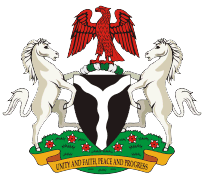Written by Patrick Dele Cole - Nigeria
ESOSA Susan is 5ft. 7 inches tall. Excellently proportioned; today she is wearing a designer dress she bought in Paris, at the Etienne Hugo. The dress fits perfectly and stops demurely at her knees. She is wearing a 7-inch Jimmy Choo heels killer sexy heels any other woman would die for. Her handbag is a small affair from Prada. The hair, the latest hair attachment - is full and luxurious looking as if she has just stepped out of a salon. Where others make or do their hair with three bunches, she did five, which is styled by a professional hair stylist. The total effect is stunning - get people - men and women - gapping at this apparition of beauty stepping down the road. Heads turn as she passes. She is a Benin girl whose name is Esosa Susan.
Her swagger is different from that of every other girl.
You cannot intimidate her; she has a peculiar life view - that life is for the present to be enjoyed in full. She speaks with a low voice but with a tilt that emphasizes the peculiar Pidgin English that is entirely unique to Benin in the same way as you can tell when a "Warri boy" or "Port Harcourt boy" speaks pidgin. But that voice can rise with particular venom when she is angry or distressed. All the sophistication of Esosan is skin deep. She is not beyond descending to the language of a gutter snip or fighting. Hers is a tough world and only the tough survive.
Furthermore, the Benin girl is a special phenomenon. It is unique - why? She is part of an industry - with world-wide implications and connections - it is the employment of young women who are upwardly mobile, beautiful, well "educated", trained in the sexual arts, able to make a lot of money through gifts from men: the closest comparable relationship is that of geisha girls in Japan (without the overt sexuality). She is obviously intelligent - street wise - but can fit in a sophisticated setting.
Benin is a centre, a confluence of several cultures - Edo, Ibo, Urhobo, Itsekiri, Ishan, Estshako, Isoko, Kwale, Agbor, Ubulu Uku, Isele Uke, Asaba, etc.
The early historical influence of Benin Empire went as far as present day Benin Republic, Lagos, Warri, Ife, Ishan etc. Moreover, there is a long historical connection with Benin Empire: today Benin is a confluence of beauty, brain, money, power and influence. Benin was the epicenter of the 419 scam until recently when it moved to Asia.





